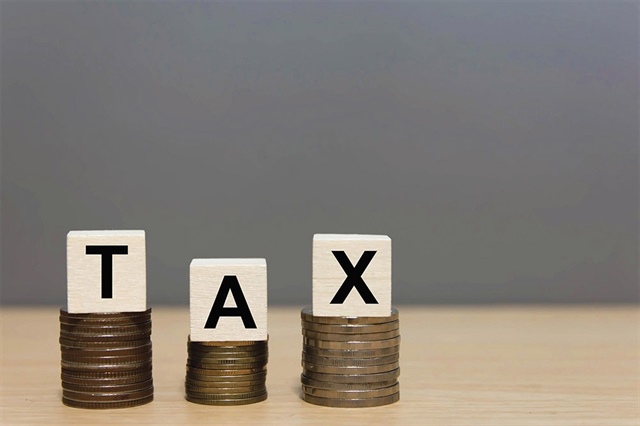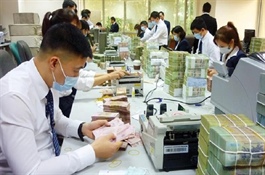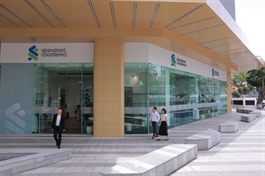Tax policies and market clean-up boost retail stocks
Tax policies and market clean-up boost retail stocks
With the recent approval of maintaining current VAT rates and intensified efforts to tackle counterfeit goods, the retail sector is expected to benefit from a more favourable policy environment conducive to sustained growth.
The National Assembly approved a resolution to maintain VAT at 8 per cent on most goods and services on June 17. The move underscores the government’s strong commitment to stimulating domestic demand, which accounts for nearly 70 per cent of Vietnam’s GDP.

Tax policies and market clean-up boost retail stocks |
Although the VAT cut excludes specific sectors such as telecommunications, banking, real estate, and luxury goods, its broad application across essential consumer categories is expected to buoy up household spending.
Reinforcing these efforts, Prime Minister Pham Minh Chinh called for heightened measures against smuggling, trade fraud, and counterfeit goods in May. The Ministry of Finance was tasked with coordinating enforcement and tightening control of imported goods, aiming to curb the flow of low-quality and illicit products into the domestic market.
Given the current policy momentum and evolving retail landscape, analysts believed the retail stock segment is well-positioned to accelerate growth in the next couple of years.
Nguyen Thanh Lam, director of retail client research at Maybank Investment Bank Securities (MSVN), commented that the VAT rate would continue to spur household spending amid ongoing macroeconomic challenges.
“The government is maintaining a proactive stance to support internal demand and stabilise consumer sentiment. With an ambitious GDP growth target of 8 per cent for 2025, a level notably higher than recent years, private consumption will play a key role,” Lam said.
MSVN forecasts that Vietnam’s retail sales could grow 12 per cent in 2025, compared to an estimated 9 per cent increase this year. The positive trajectory is further reinforced by prospective policy moves, including amendments to the personal income tax law to raise deduction thresholds and a nationwide roll-out of free public school tuition from September.
These measures are likely to boost net disposable incomes and sustain the recovery in consumer purchasing power through late 2025 and 2026.
“A strong policy mix is being deployed,” Lam told VIR. “This includes speeding up public investment disbursement and fiscal stimulus packages aimed at sectors like real estate and tourism. We expect these to provide further impetus to domestic demand.”
From a stock market viewpoint, retail equities are emerging as attractive plays. Nguyen Viet Duc, director of digital business at VPBank Securities, said that while many retail stocks have already recorded gains, a market correction could offer opportunities for long-term investors.
“The retail group warrants close attention. Even though many of these stocks have rallied, their underlying fundamentals and strategic positioning justify continued interest, especially during a correction phase,” he said.
Duc also highlighted the government’s strong stance against counterfeit and imitation goods as a key supporting factor. “Companies like Digiworld and Mobile World have previously suffered due to the influx of fake products. A stricter regulatory approach improves market transparency and levels the playing field for legitimate businesses,” he added.
Key retail tickers such as MWG, PNJ, FRT, and DGW are regarded as fundamentally sound, well-positioned to capture the rebound in consumer spending and capitalise on the longer-term shift towards modern retail formats. Duc also pointed to Masan Group (MSN) as a stock to watch, particularly with the possibility of an upgrade for Vietnam’s stock market to emerging status, which could attract additional foreign inflows.
“We also expect potential initial public offerings in Masan’s consumer and retail segments to serve as catalysts for a revaluation of the stock,” he added.
Retailers themselves are signalling confidence through ambitious financial targets. Mobile World Investment Corporation is aiming for $5.9 billion in revenue this year, up 12 per cent, and post-tax profit of $190 million, marking a 30 per cent rise over 2024.
If achieved, this would represent the company’s highest-ever revenue and its second-highest annual profit after 2021. In the first quarter, MWG posted a profit of $61 million, up 71 per cent year-on-year.
FPT Retail is forecasting revenue of $1.9 billion, up 20 per cent, with a pre-tax profit goal of $35.4 million, a 71 per cent increase. The company posted Q1 profits of $8.4 million, more than 3.5 times the same period last year.
Meanwhile, Digiworld has set a target of $1 billion in annual revenue and $20.5 million in post-tax profit, up 15-18 per cent over 2024. The company’s Q1 performance already showed positive momentum, with an 11 per cent revenue increase to $217 million and a 14 per cent profit rise to $4.2 million.
- 13:00 02/07/2025





























